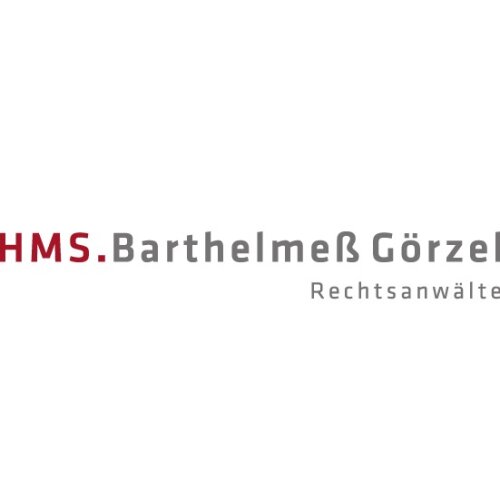Best Landlord & Tenant Lawyers in Cologne
Share your needs with us, get contacted by law firms.
Free. Takes 2 min.
Free Guide to Hiring a Real Estate Lawyer
List of the best lawyers in Cologne, Germany
About Landlord & Tenant Law in Cologne, Germany:
Landlord & Tenant law in Cologne, Germany governs the rights and responsibilities of both landlords and tenants in relation to rental properties. It sets out rules regarding rental agreements, rent payments, property maintenance, termination of leases, and dispute resolutions.
Why You May Need a Lawyer:
You may need a lawyer specializing in Landlord & Tenant law in Cologne, Germany in various situations such as:
- Drafting and reviewing rental agreements to ensure legal compliance
- Seeking legal advice on your rights and responsibilities as a landlord or tenant
- Dealing with eviction proceedings or lease termination disputes
- Resolving conflicts related to repairs, maintenance, or return of security deposits
- Understanding the legal implications of rent increases or lease renewals
Local Laws Overview:
Some key aspects of Landlord & Tenant law in Cologne, Germany include:
- Rental Agreements: Must be in writing and specify essential terms such as the duration, rent amount, and security deposit requirements.
- Rent Payment: Tenants are generally required to pay rent on time and in full, while landlords must provide receipts for rent received.
- Repairs and Maintenance: Landlords are responsible for essential repairs and maintenance, while tenants are responsible for minor repairs and keeping the property clean.
- Lease Termination: Specific notice periods are required for terminating a lease, and both parties must adhere to these regulations.
- Security Deposits: Landlords may request a security deposit, which must be returned to the tenant at the end of the tenancy, minus any legitimate deductions.
Frequently Asked Questions:
1. Can a landlord increase the rent during a lease?
Yes, a landlord can increase the rent during a lease, but specific conditions must be met. Generally, the increase cannot exceed the local market rate, and notice must be provided to the tenant in writing with a reasonable amount of time before the increase takes effect.
2. How much notice does a tenant need to give before vacating a rental property?
The notice period depends on the duration of the tenancy. If the tenancy has been in place for less than five years, tenants must generally provide three months' notice. For tenancies over five years, the notice period increases to six months.
3. What can I do if my landlord fails to make necessary repairs?
If your landlord fails to make required repairs, you have several options. You can inform the landlord in writing about the issues and request repairs within a reasonable timeframe. If your landlord still does not address the problem, you may consider involving local authorities or seeking legal advice to explore further actions.
4. Can a landlord withhold my entire security deposit?
No, a landlord cannot withhold the entire security deposit without a valid reason. The landlord can deduct reasonable amounts from the deposit to cover unpaid rent, repairs beyond normal wear and tear, or outstanding bills. The remainder must be returned to the tenant within a specific timeframe.
5. What steps can a tenant take if facing eviction?
If facing eviction, it is important for the tenant to seek legal advice immediately. In some cases, negotiations or settlements may be possible. Tenants also have the right to challenge an eviction in court if they believe it is unjust or not in compliance with the law.
Additional Resources:
For further information or legal assistance regarding Landlord & Tenant law in Cologne, Germany, you may refer to the following resources:
- City of Cologne Housing Department
- German Tenants' Association (Deutscher Mieterbund)
- Local Legal Aid Clinics
- Cologne Bar Association
Next Steps:
If you require legal assistance or have specific questions about Landlord & Tenant law in Cologne, Germany, it is recommended to contact a qualified lawyer specializing in this area. They can provide personalized advice based on your situation and guide you through the legal process.
Lawzana helps you find the best lawyers and law firms in Cologne through a curated and pre-screened list of qualified legal professionals. Our platform offers rankings and detailed profiles of attorneys and law firms, allowing you to compare based on practice areas, including Landlord & Tenant, experience, and client feedback.
Each profile includes a description of the firm's areas of practice, client reviews, team members and partners, year of establishment, spoken languages, office locations, contact information, social media presence, and any published articles or resources. Most firms on our platform speak English and are experienced in both local and international legal matters.
Get a quote from top-rated law firms in Cologne, Germany — quickly, securely, and without unnecessary hassle.
Disclaimer:
The information provided on this page is for general informational purposes only and does not constitute legal advice. While we strive to ensure the accuracy and relevance of the content, legal information may change over time, and interpretations of the law can vary. You should always consult with a qualified legal professional for advice specific to your situation.
We disclaim all liability for actions taken or not taken based on the content of this page. If you believe any information is incorrect or outdated, please contact us, and we will review and update it where appropriate.









